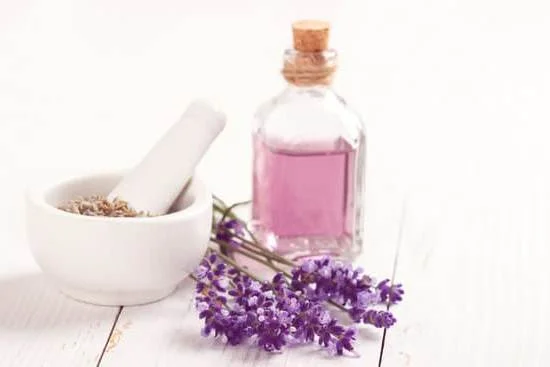Aromatherapy is an ancient practice that has gained significant popularity in recent years as a natural healing method. This holistic approach utilizes essential oils extracted from plants to promote physical, mental, and emotional well-being.
But amidst the growing trend of incorporating aromatherapy into wellness routines, many individuals are left questioning whether insurance companies cover the cost of these treatments. In this article, we will delve into the world of aromatherapy, exploring its numerous benefits and shedding light on insurance coverage for these treatments.
Aromatherapy involves using essential oils derived from various parts of plants such as flowers, leaves, or bark. These oils are known for their aromatic fragrance and are believed to possess therapeutic properties that can aid in relaxation, stress reduction, pain management, and even improve sleep quality. Depending on individual preferences and needs, aromatherapy techniques like inhalation, topical application, or massage can be employed to reap these benefits.
The rise in popularity of alternative healing methods has led to increased interest in aromatherapy as a complementary treatment option. Many individuals find relief from physical ailments or emotional distress through the use of essential oils. However, one question that often arises is whether insurance companies provide coverage for these treatments. In the following sections, we will explore this subject in detail and provide insights into the factors that may influence insurance coverage for aromatherapy.
As we embark on this journey through the realm of aromatherapy and insurance coverage considerations, it is important to note that while some insurance plans do cover certain alternative therapies, others may not include aromatherapy specifically. Understanding how insurance companies evaluate coverage options for alternative treatments like aromatherapy can help individuals navigate their own insurance policies and explore other alternatives if necessary. So let us uncover the world of aromatherapy and discover whether insurance covers this beneficial practice.
Understanding Aromatherapy
Aromatherapy is a holistic healing method that utilizes natural plant extracts to promote physical, mental, and emotional well-being. It involves the use of essential oils derived from various parts of plants such as flowers, leaves, bark, and roots. These oils are highly concentrated and contain the aromatic compounds that give plants their unique scents.
The practice of aromatherapy dates back thousands of years and has been used by ancient civilizations such as the Egyptians, Greeks, and Chinese. Today, aromatherapy has gained widespread popularity as an alternative form of medicine due to its numerous benefits.
Aromatherapy works by stimulating smell receptors in the nose, which then send signals to the brain’s limbic system. The limbic system plays a crucial role in regulating emotions, memory, and mood. When specific essential oils are inhaled or applied topically, they can have a profound effect on these areas of the brain, promoting relaxation, reducing stress levels, improving sleep quality, and enhancing overall well-being.
In addition to its impact on the brain, aromatherapy also offers physical benefits. Many essential oils possess antimicrobial properties that can ward off bacteria and viruses. Some oils also have anti-inflammatory properties that can help reduce pain and inflammation in muscles and joints.
Overall, understanding aromatherapy is essential for individuals seeking natural healing methods. By harnessing the power of plant extracts through inhalation or topical application, aromatherapy can provide a wide range of benefits for both body and mind.
The Rise in Popularity
Aromatherapy, once considered a niche holistic practice, has experienced a significant rise in popularity in recent years. People are increasingly turning to this natural healing method to improve their overall well-being and address various health concerns. This section will delve into the reasons behind the increasing trend of using aromatherapy and explore its benefits as a natural healing method.
One of the primary reasons for the surge in popularity of aromatherapy is the growing interest in alternative and complementary therapies. As more individuals seek effective and safe alternatives to conventional medicine, they are discovering the power of essential oils and their ability to support optimal health. Aromatherapy offers a holistic approach that addresses not only physical ailments but also emotional and mental well-being.
Another factor contributing to the rise in popularity of aromatherapy is its accessibility. With the advent of online shopping and a wide range of essential oil brands on the market, aromatherapy has become more accessible to the general public. People can easily purchase essential oils, diffusers, and other supplies needed for their aromatherapy practices without having to visit specialized stores or practitioners.
Furthermore, increased awareness about self-care and wellness has propelled aromatherapy into the mainstream. Many individuals are actively seeking ways to reduce stress, improve sleep quality, manage pain, boost mood, and enhance relaxation. Aromatherapy provides a natural solution that can help address these concerns through its wide array of therapeutic properties.
As the demand for holistic health approaches continues to grow, it is likely that aromatherapy will further solidify its place as a popular natural healing method. With more research being conducted on its efficacy and safety, aromatherapy may even gain recognition within traditional medical systems as an adjunct therapy. The rising trend of using aromatherapy reflects society’s deepening appreciation for holistic wellness practices that promote balance and harmony in both body and mind.
Exploring Different Aromatherapy Techniques
Inhalation
Inhalation is one of the most common and effective methods of using aromatherapy. This technique involves inhaling essential oils directly or indirectly, allowing the molecules to enter the lungs and bloodstream. There are different ways to practice inhalation, including using a diffuser, steam inhalation, or simply placing a few drops of essential oil on a tissue or handkerchief. Inhalation can help with respiratory issues, promote relaxation, and improve mood.
Topical Application
Another popular method of aromatherapy is topical application. This involves applying diluted essential oils to the skin, usually through massage or by adding them to skincare products such as lotions or creams.
When applied topically, essential oils are absorbed through the skin and can provide various benefits such as pain relief, improved circulation, and skin rejuvenation. It is important to note that some essential oils may cause sensitivities or reactions on certain individuals’ skin, so it is recommended to do a patch test before full application.
Massage
Aromatherapy massage combines the therapeutic benefits of essential oils with the relaxing and healing power of touch. During an aromatherapy massage session, a trained therapist will use specific essential oils blended with carrier oils to address specific needs and concerns. The massage techniques combined with the healing properties of the essential oils can help reduce stress and anxiety, release muscle tension, improve circulation, promote better sleep quality, and enhance overall well-being.
These three techniques are just a few examples of how aromatherapy can be incorporated into daily life for its numerous benefits. Whether you choose inhalation to uplift your mood in stressful situations or opt for topical application during a soothing self-care routine, exploring different aromatherapy techniques allows you to personalize your experience based on your needs and preferences.
Benefits of Aromatherapy
Aromatherapy has long been celebrated for its wide range of physical, mental, and emotional benefits. This section will delve deeper into the positive effects that aromatherapy offers, highlighting its potential impact on various aspects of well-being.
Physical Benefits
One of the primary physical benefits of aromatherapy is pain relief. Certain essential oils such as lavender, peppermint, and eucalyptus have analgesic properties that can help alleviate headaches, muscle aches, and joint pain. In addition to pain relief, aromatherapy has also been found to boost the immune system. Essential oils like tea tree oil and lemon have antimicrobial properties that can aid in preventing infections and supporting overall immune health.
Aromatherapy can also promote better sleep quality. Essential oils like chamomile and lavender have relaxing properties that can help induce sleep and improve overall sleep patterns. Additionally, many individuals find that aromatherapy helps to reduce stress levels and enhance relaxation due to the calming effects of certain scents.
Mental and Emotional Benefits
Beyond its physical benefits, aromatherapy has proven effective in enhancing mental and emotional well-being. Many essential oils have uplifting properties that can help alleviate symptoms of depression and anxiety. Scents like bergamot, rosemary, and clary sage are commonly used in aromatherapy for their mood-enhancing effects.
Moreover, aromatherapy has shown promise in improving cognitive function. Some essential oils stimulate brain activity and increase alertness, concentration, and focus. Rosemary oil is often associated with improved memory retention.
Aromatherapy and Insurance Coverage
Aromatherapy, a holistic healing method that utilizes essential oils to promote physical and emotional well-being, has gained significant popularity in recent years. As more people turn to natural remedies and alternative therapies, the question of whether insurance companies cover aromatherapy treatments often arises. In this section, we will delve into the topic of aromatherapy and insurance coverage to shed light on this matter.
Unfortunately, the answer to whether insurance companies typically cover aromatherapy treatments is not a straightforward one. The coverage for aromatherapy varies greatly depending on several factors such as the insurance policy, provider, and the specific treatment being sought.
Some insurance plans may include coverage for certain types of complementary and alternative medicine (CAM) therapies, which can include aromatherapy. However, it is crucial to review your policy or contact your insurance provider directly to determine if aromatherapy is covered under your plan.
To further complicate matters, even if an insurance plan includes coverage for CAM therapies like aromatherapy, there may be limitations or restrictions in place. For example, some plans may only cover aromatherapy when it is provided by a licensed healthcare professional or a certified aromatherapist. It is important to understand these details beforehand so that you are aware of any potential out-of-pocket expenses or alternative options available.
If your insurance does not provide coverage for aromatherapy treatments or if you do not have insurance at all, there are alternative options available. One option is to explore government-funded programs that offer financial assistance for certain CAM therapies.
Additionally, some employers offer wellness programs that include coverage for alternative therapies such as aromatherapy. It may also be worth considering a health savings account (HSA) or flexible spending account (FSA), which allow pre-tax funds to be used towards eligible medical expenses including certain CAM treatments.
Factors Affecting Insurance Coverage
When it comes to insurance coverage for aromatherapy treatments, there are several factors that insurance companies take into account. Understanding these factors can help individuals determine whether their insurance plan will cover this alternative healing method.
1. Provider Qualifications: One of the key factors that insurance companies consider is the qualifications and credentials of the aromatherapist providing the treatment. Insurance companies typically prefer working with licensed professionals who have received proper training and certification in aromatherapy. Providers who meet specific standards are more likely to be covered by insurance.
2. Treatment Necessity: Insurance companies also evaluate the necessity of aromatherapy treatments for individuals seeking coverage. In many cases, they require a diagnosis from a healthcare provider stating that aromatherapy is medically necessary for treating a particular condition or ailment. This means that insurance may not cover aromatherapy as a preventive measure or for general wellness purposes.
3. Plan Exclusions and Limitations: It is essential to review your insurance policy to understand any exclusions or limitations related to alternative therapies like aromatherapy. Some plans specifically exclude coverage for these types of treatments, while others may only cover certain conditions or provide limited coverage.
While it can vary depending on the specific insurance plan, these factors generally influence whether aromatherapy will be covered by insurance. Individuals considering using aromatherapy as part of their healthcare should consult with their insurance company and review their policy’s terms and conditions carefully.
It is important to note that even if aromatherapy is not covered by insurance, there are still other options available for accessing this type of treatment. Many practitioners offer affordable self-pay rates, and some health savings accounts (HSAs) or flexible spending accounts (FSAs) may allow funds to be used for alternative therapies like aromatherapy. Additionally, there are community health clinics or wellness centers that provide low-cost or sliding-scale fees for these treatments.
Alternative Options for Insurance Coverage
While the benefits of aromatherapy are well-known, it is unfortunate that insurance coverage for this form of treatment may not always be available. However, there are alternative options available for individuals who do not have insurance coverage for aromatherapy and still wish to explore this natural healing method.
One option is to consider utilizing a health savings account (HSA) or flexible spending account (FSA) if you have one through your employer. These accounts allow you to set aside pre-tax dollars specifically for healthcare expenses, including alternative therapies like aromatherapy. By using these funds, you can pay for aromatherapy treatments out-of-pocket while still receiving tax advantages.
Another alternative solution is to look into holistic healthcare organizations or wellness programs that offer discounted services for aromatherapy treatments. These organizations might provide reduced rates or membership discounts that make aromatherapy more accessible to those without insurance coverage. It is worth researching local establishments and inquiring about any promotional offers or special prices they may have.
Additionally, some practitioners may offer sliding scale fees based on income level or provide payment plans that allow individuals to spread out the cost of their aromatherapy treatments over time. Reach out to different therapists or clinics to see if they offer financial assistance options or can accommodate individual payment needs.
| Alternative Option | Description |
|---|---|
| Health Savings Account (HSA) or Flexible Spending Account (FSA) | Pre-tax accounts that allow individuals to set aside funds for healthcare expenses, including aromatherapy |
| Holistic Healthcare Organizations and Wellness Programs | Organizations that offer discounted services or membership discounts for aromatherapy treatments |
| Sliding Scale Fees/Payment Plans | Some practitioners may offer reduced rates based on income level or payment plans for individuals to manage the cost of their aromatherapy treatments |
Tips for Maximizing Insurance Coverage
Insurance coverage for aromatherapy can vary depending on the insurance provider and policy. While some insurance companies may offer coverage for aromatherapy treatments, others may not. However, there are certain tips and strategies that individuals can utilize to maximize their insurance coverage for aromatherapy treatment.
One important tip is to thoroughly review your insurance policy to understand what it covers. Some policies may have specific provisions for complementary therapies, including aromatherapy. It is essential to check if aromatherapy is listed as a covered therapy or if it falls under any other categories such as alternative medicine or holistic treatments.
If aromatherapy is not explicitly covered in your insurance policy, you can explore the option of submitting a claim for reimbursement. This involves paying for the aromatherapy treatment out-of-pocket and then submitting a claim to your insurance company for potential reimbursement. However, it is advisable to contact your insurance provider beforehand to inquire about their reimbursement process and any required documentation.
Another way to maximize insurance coverage for aromatherapy is by obtaining a referral from a healthcare practitioner. Some insurance companies may require a referral from a medical doctor or other healthcare professional in order to cover complementary therapies like aromatherapy. By getting a referral, you increase the likelihood of receiving reimbursement or coverage for your sessions.
Additionally, it can be beneficial to research and choose an aromatherapist who is recognized by leading professional organizations in the field. This can help demonstrate the credibility and expertise of the therapist, potentially increasing the chances of insurance coverage.
| Tips | Strategies |
|---|---|
| Review insurance policy | Check if aromatherapy is covered |
| Submit claim for reimbursement | Inquire about reimbursement process and documentation |
| Obtain referral from healthcare practitioner | Increase likelihood of coverage or reimbursement |
| Choose accredited aromatherapist | Demonstrate credibility and expertise |
Conclusion
In conclusion, this article has explored the world of aromatherapy and its numerous benefits. Aromatherapy is a natural healing method that has gained popularity in recent years due to its effectiveness in promoting physical, mental, and emotional well-being. The various techniques of aromatherapy, such as inhalation, topical application, and massage, offer individuals a range of options for incorporating aromatherapy into their wellness routines.
While insurance coverage for aromatherapy treatments may vary depending on the provider and policy, it is important to understand the factors that insurance companies consider when determining coverage. Factors such as the type of insurance plan, specific conditions being treated, and the qualifications of the aromatherapist can all influence whether or not a treatment is covered. It may be beneficial for individuals interested in aromatherapy to explore alternative options if their insurance does not cover these treatments.
Regardless of insurance coverage, aromatherapy offers a wide range of potential benefits. From alleviating stress and anxiety to relieving pain and improving sleep quality, aromatherapy can enhance overall well-being. With its ability to support both physical and emotional health, incorporating aromatherapy into one’s self-care routine can have lasting positive effects.
Frequently Asked Questions
Is Essential Oil Covered by Insurance?
Essential Oil is not typically covered by insurance. The reason for this is that essential oils are considered to be alternative or complementary forms of medicine, and most health insurance plans only cover treatments or medications that are recognized by mainstream medical practitioners.
However, it’s important to note that some specific circumstances may exist where certain insurance plans or policies will cover the use of essential oils, such as when they are prescribed by a licensed healthcare professional for a specific medical condition.
Is Aromatherapy Considered Medical?
Aromatherapy can be considered a form of complementary or alternative medicine, but generally speaking, it is not classified as a medical treatment. Aromatherapy uses essential oils and aromatic substances to promote physical and emotional well-being, but it is often used in conjunction with traditional medical treatments rather than as a standalone method of healing.
While aromatherapy has been found to have various therapeutic benefits, it should not replace formal medical care for serious conditions.
Do Aromatherapists Need Insurance?
Although there is no legal requirement for aromatherapists to have insurance, it is highly advisable for them to do so. Aromatherapists may choose to obtain liability insurance to protect themselves against any potential claims or lawsuits that may arise from their practice. This type of insurance can provide coverage for professional negligence, bodily injury, property damage, and other liabilities associated with providing aromatherapy services.
Additionally, many professional organizations or associations require members to carry liability insurance as part of their membership requirements. Having insurance helps both the therapist and their clients feel more secure during treatments and ensures that financial protection is in place if any issues occur.

Are you looking for a natural way to improve your health and wellbeing?
If so, aromatherapy may be the answer for you.





